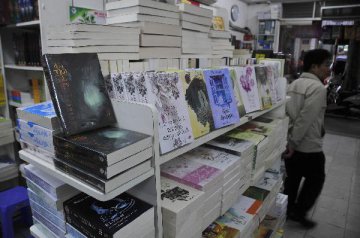Though 10 years have passed since Mo published his previous book, the celebrated Chinese writer said he has never stopped writing.
In a recent interview with Xinhua, Mo expressed his longing to keep creativity in his writing.
Writers usually win the Nobel Prize late in life, and creativity often ebbs with age, Mo said, pointing out that the growing number of social activities and engagements, as well as the pressure that comes along with the prize, can impede authoring.
He however noted that many important works have been created after a writer is awarded the title of Nobelist. "I have never stopped writing or preparing for a new creation over the past eight years."
Using first-person narration, Mo writes "himself" into his new book, which consists of 12 stories. "These stories continue my writing style, yet, blend new elements," he said.
Such a way of writing gives readers a sense of reality, which Mo said is something he pursues. However, most of the stories and figures in the book are fictional, he added.
In Mo's eyes, the "late bloomer," in his new book, is a commendatory term describing people who conceal their talents at a young age but shine in the latter half of their lives.
From the perspective of literature and arts, Mo said a writer or an artist, who becomes mature, rigidified and unchanged at an early age, presages an end of creation, while being a late bloomer means having a spirit that always pursues innovation and transformation.
"We always want changes in our works. We want to be able to surpass ourselves, and we want to maintain our vitality of art and ability to create," Mo said.




















Latest comments